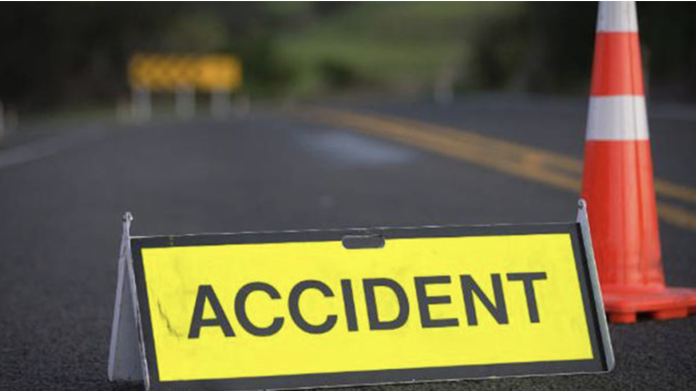- The majority of Indians would wish to pursue morning newspapers to understand what’s happening in and around the country as well as globally. Keeping one abreast of current affairs helps in more than one way, you see. Apart from the usual occurrences in a varying degree of importance being reported, one of the most dreaded reportage that nobody wishes to pursue is the column reserved for civic apathies. Especially, subjects related to crime and accidents are not usually welcomed by any, but reportage on the matter usually catches attention wittingly or unwittingly. It is extremely disturbing and heart-wrenching to read about gruesome accident deaths on the roads for want of basic amenities like a commutable road.

PC: The Hans India
- Most annoyingly, these avoidable accidental deaths keep occurring at alarmingly regular rates makes one feel terribly shaken. Remember, a good percentage of our time is spent on roads, and our roads just don’t get better or safer ensuring the safety of millions of commuters. Note that a third of the 4.1 lakh documented road accidents in 2021 resulted in 1.5 lakh deaths. Further, another third of the accidents resulted in grievous injuries. It’s no exaggeration to state that nearly everyone has a scary story about a close shave on the road. Recent incidents like the heart-wrenching Anjali Singh case in Delhi, cricketer Rishabh Pant’s accident in Uttarakhand and Tamil Nadu software engineer S Shobana’s death are just to name a few.
- The last mentioned was mowed down by a truck after her two-wheeler was felled by a pothole, highlighting the multiple dimensions of risks while on the road. Of course, the record-setting expansion of the road network is a positive development. But the ecosystem that facilitates safe travel has lagged far behind. Building infra isn’t the end: new structures manned by old ways of doing things aren’t helping. In a chilling incident, Anjali was dragged by a car at night for over 12 kilometres with an eyewitness making calls to cops multiple times in vain. In the interim, the poor state of policing on national capital roads stood exposed. The car’s drunk driver had no driving licence but had nothing to fear on unpoliced roads.

PC: Irshadgul
- Agencies like NHAI and state public works departments, which construct and maintain major roads, must also be held to task for poor road conditions like potholes, inadequate signages, and unscientific road construction. Official records blame overspeeding and dangerous driving as responsible for most accidents, and non-wearing of safety equipment like helmets and seatbelts for most deaths. This only implies that road safety enforcement must get better. The Motor Vehicles Act as amended in 2019 empowered state governments to conduct electronic monitoring of roads through speed cameras, CCTV cameras, speed guns, body wearable cameras, etc. Investments in such tech upgrades should happen faster.
- Equal importance should be emphasized on incentivizing public participation in taking victims to hospitals promptly and reimbursing hospitals for emergency trauma care. Stakeholders like the police, the courts, the transport department, public works, and healthcare should join hands to make citizens feel safer. Unless the governments push ahead with improvements on this front involving mentioned agencies, the road conditions cannot see palpable, leave alone dramatic, changes benefitting the commuters. Hopefully, concrete action will ensue sooner than later.






